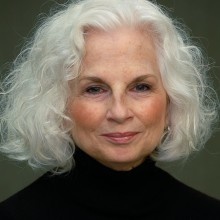Two decades ago, I began working on a project in West Liberty that I often defined, when asked, as community-based research. As my work in West Liberty continued over time, the project focus shifted from me working in the community to working with the community in the form of partnerships and collaborations with local residents.
Over the years, my work has come to involve understanding the community on its terms and working toward goals that are jointly enacted with project partners in the community. But I’ve often lacked a clear way to describe my work to others on campus.
You may have heard terms like public engagement, civic engagement, public scholarship, community-based research or participated in discussions on the importance of outreach. And maybe you wondered what these words mean in the context of your work/life at the university and as an Iowa resident.
As campus conversations around public engagement have emerged, this “new” language has enabled me to name the work I do. As a result, my work as a teacher and a scholar is re-positioned in ways that add richness to my work and invite a reconsideration of what counts as research and the contributions publicly-engaged scholars can offer the academic community.
Although many of us increasingly use these terms, we do not always do so with a shared definition. As the university moves forward with several important initiatives in these areas, I urge that an early goal should be to work toward a common language that will allow shared understandings and common goals to emerge. Just as important, individuals and groups in communities with whom we propose to collaborate will more clearly understand our purposes with these initiatives.
The Obermann Working Group on the Scholarship of Public Engagement has begun the work of addressing these very issues. Eight of us meet regularly to discuss why we are drawn to public scholarship, its many challenges, and the opportunities afforded us as publicly engaged scholars.
The challenges are many and often complicated. Together, we discuss the ethics and dilemmas of conducting work with communities in ways similar to other research teams on campus. We are an interdisciplinary group and often discuss how public scholarship allows us to break free of the academic silos that define our lives as scholars and teachers.
However, new visions of our work come with a call for a new academic paradigm with a restructuring of rewards and recognition reflective of a shift in the roles and responsibilities of academia. The context of our Working Group allows for talking across disciplinary boundaries to describe the ways each of us enacts public scholarship in rural communities in Southeastern Iowa.
As public scholars, we aspire to three tenets that guide our work:
- Our work is scholarly both in its acts of engagement and in the products that emerge. Public scholarship regularly melds the acts of teaching, research, and service so as to be inseparable. Engaged scholarship reflects a particular approach to campus-community collaborations that likely differs from outreach efforts.
- Our work as public scholars is guided by reciprocity and sharing mutual benefits with community partners. Working with community partners depends on planning and jointly enacting plans, activities, and projects.
- Through our public scholarship, we strive to re-instill the process and values of a civil democracy—principles that are the legacy and tradition of public universities.
Each of us understands our scholarship, teaching, and engaged service in ways that are consistent with models of public engagement. New times call for re-envisioning how the university builds relationship with our publics—those individuals and groups who are our constituents and stakeholders. While outreach models, a component of public engagement, will continue to serve some university units, we find the language of public engagement to be consistent with the university’s initiatives going forward. And we are pleased that UI Executive Vice President and Provost P. Barry Butler has announced that public engagement is a guiding initiative in the year ahead.
For additional examples of public scholarship, please visit with members of the Obermann Working Group on Public Engagement:
- Saba Ali (Counseling Psychology) directs Project Hope, an effort to shape the career options of rural Iowa students, particularly immigrant youth in STEM.
- Lia Plakans (Foreign Language) and Ann Santos (School Psychology) are partnering with a nearby rural school district to assist faculty and staff in language testing of migrant youth and helping parents actively engage with school.
- Mary Aquilino (Community and Behavioral Health) uses her expertise in service learning and community involvement to generate partnerships with rural Iowans and Public Health graduate student focused on health disparities.
- Ann Ricketts (Office of the VP for Research) keeps us connected to public engagement at the level of CIC institutions with an eye to national perspectives.
- Tricia Zebrowski, Linda Louko, and Rebecca Alper (Communication Sciences) have a partnership with a rural school district to support and expand the early literacy experiences of preschoolers whose first language is something other than English.
A highlight of the university’s commitment to public engagement is the application to become an engaged campus as designated by Carnegie. As a further demonstration of its commitment, the university has appointed a new Associate Provost, Linda Snetselaar from the College of Public Health, to provide leadership for public engagement.
The university—its faculty, staff, and students—has a history of committing institutional resources to support new initiatives and the challenges and new visions that accompany new times. And now is our time to embrace public engagement.

A member of the Obermann Working Group on Public Engagement, Carolyn Colvin is an associate professor in the College of Education’s Department of Teaching and Learning. She co-directs the Obermann Graduate Institute on Engagement and the Academy, which is accepting applications through Tuesday, Oct. 8.